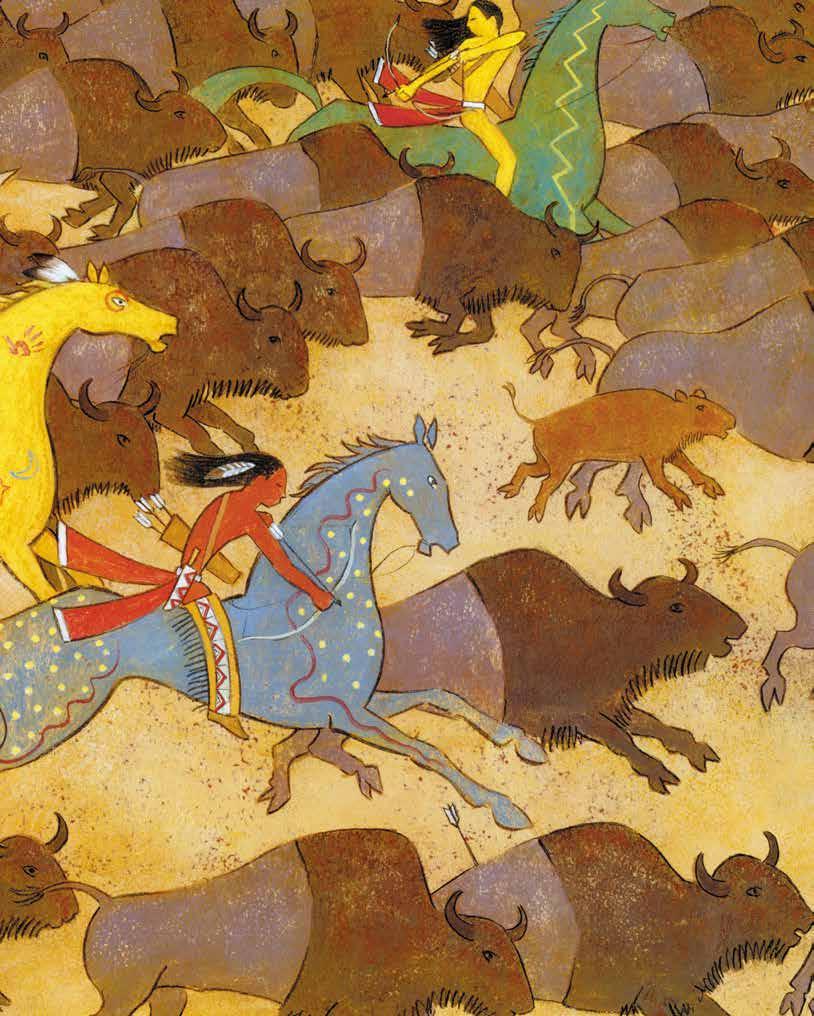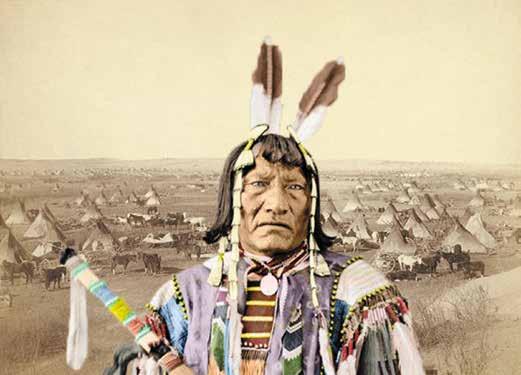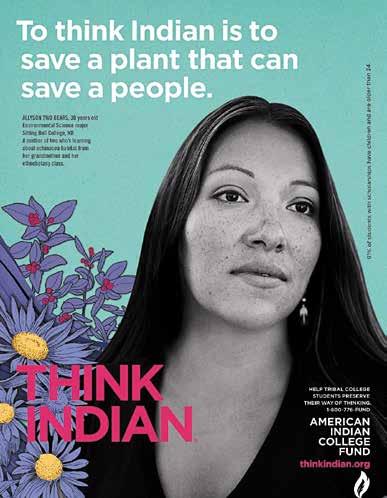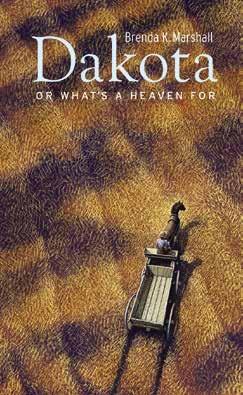
7 minute read
A Looming Crisis in the Humanities
Speech by Jim Leach [College Art Association Centennial Convocation, New York, NY, February 9, 2011]
I am honored to address this distinguished arts convocation on this centennial occasion.
Advertisement
Before discussing the humanities, let me briefly describe the sometimes blurry border between the National Endowment for the Arts and the National Endowment for the Humanities. The NEA is principally about stimulating and appreciating creativity; the work of the NEH is aimed at providing uplift and perspective to the lives of our citizens and the country itself. The NEA thus supports theater, poetry, art making; the NEH, on the other hand, is mandated to advance research and public programs in history, literature, philosophy and related disciplines, from jurisprudence to ethics, anthropology to comparative religions.
The two Endowments are sister institutions with identical funding levels and certain overlaps. For instance, the NEH can support anything preceded by the word “history.” So history of art, or for that matter, history of science or technology, is within our jurisdiction.
As you all know, Congress and virtually all state legislatures are under extraordinary pressure to restrain spending. Given the magnitude of debt levels in government as well as within the American family, the public has indicated at the ballot box that fiscal discipline is necessary, perhaps urgent.

The NEH accepts the call for restraint and recognizes the case for trimming federal spending. Nevertheless, we are deeply concerned with the entreaties of some that there be a total elimination of cultural institutions like NEA and NEH. Constraining funding may be unavoidable, but abolishing institutions central to advancing human understanding and creativity is counter to the national interest.
As the NEH’s founding legislation makes clear, “The world leadership which has come to the United States cannot rest solely upon superior power, wealth, and technology, but must be solidly founded upon worldwide respect and admiration for the Nation’s high qualities as a leader in the realm of ideas and of the spirit.”
Humanities studies expand understanding of human nature and the human condition. Such pursuits may seem esoteric or inconsequential in view of the dire economic and security challenges we face. Indeed, the present budget debate has raised the basic question: Are the humanities bedrock necessities of enlightened citizenship, or are they a dismissible luxury for society?
That question can be answered even without invoking the unquestionable value of enriching the human spirit. There are ample national-security and practical benefits to studies in the humanities.
In public policy, inadequate attention to cultural issues can cost lives as well as money. For instance, despite having gone to war in the Persian Gulf a decade earlier, U.S. policy makers understood little of the Sunni/Shi’a divide when 9/11 hit. Likewise, despite the French experience in Algeria and the British and Russian in Afghanistan, we had little comprehension of the depth of Islamic antipathy to foreign intervention.
As for business, the development of a successful venture— especially one that aspires to international markets—must be based on understanding the values and culture of potential customers. The insights provided by humanities disciplines are not optional; they are essential.
For a people increasingly impacted by events across a diverse and restive world, there is no substitute for literature that causes readers to imagine themselves in the shoes of a variety of protagonists, for history that holds timeless lessons, or for the learning of languages that entails immersion in another culture.
There are, of course, costs to all public programs, but the cost of not supporting some could be far higher. Just as we need an infrastructure of roads and bridges, we need an infrastructure of ideas. In a splintered world, bridging cultures may be our most difficult challenge.
It takes years of training and decades of experience to create an expert in history or language, in literature or archaeology or comparative religion. It requires a steady stream of bright, highly motivated students to enter these fields. Without public support, American academic leadership could be vulnerable and the result could be costly to our society.
At NEH, we know how modest support can make a difference in sustaining America’s cultural resources. Few institutions have had more impact at less cost. With annual spending that is 1/21,000th of the federal budget, barely more per capita than the cost of a postage stamp, NEH has made major contributions to the democratization of ideas, providing broad and equal access to advances in knowledge and to the nation’s rich cultural heritage in programs ranging from prizewinning documentaries to programs designed to help wounded veterans cope with physical and mental trauma.
The NEH is in the knowledge development and perspective dissemination business, on scales both national and local. Through our affiliated state councils, NEH provides uplifting cultural outreach to citizens in every corner of the country, including hundreds of communities which might not be able to keep their museums and libraries open, or to provide their citizens with cultural programs, without government assistance.
Last year state humanities councils—NEH’s affiliates in the fifty states, the District of Columbia and five U.S. territories—put on 17,700 reading and discussion programs, 5,700 literacy programs, 5,800 speakers bureau presentations, 5,800 conferences, 2,300 Chautauquas, 7,120 media programs, 7,600 technology, preservation, and local history events, and sponsored 4,600 exhibitions on a wide variety of themes.
These investments in the realm of ideas pay dividends. Our grandparents recognized that when, during our most traumatic economic moment—the Great Depression—a vastly greater percentage of the federal budget was devoted to the arts and humanities than today. Depression Era public programs sustained such writers as John Steinbeck, Zora Neale Hurston and Saul Bellow, and such artists as Grant Wood, Jacob Lawrence, and Louise Nevelson.
In a similar tradition, the NEH since its inception in 1965 has supported research that has resulted in 16 Pulitzer and 20 Bancroft prizes, and the editing of literary landmarks such as the Autobiography of Mark Twain. It has supported editions of papers of our nation’s founders, presidents from George Washington to Dwight Eisenhower, military leaders like George C. Marshall, literary giants such as William Faulkner, scientists like Albert Einstein, social figures like Jane Addams, and civil rights pioneers such as Martin Luther King, Jr.
At this moment, the United States still leads the world in virtually every academic discipline. It is no accident that other countries have taken competitive notice. In China, despite crack-downs on the media, the Internet, and basic human rights, substantial new resources are being committed to aspects of the humanities, especially Confucian thought, and a national initiative is underway to attract foreign students. Likewise, in
France, Germany and Australia there is a comprehensive effort to compete with America for foreign students.
Conversely, only the most coercive despots fear the humanities. It is not surprising, for instance, that in the wake of civil unrest, Mahmoud Ahmadinejad declared that humanities courses in Iran must be purged and revised to reflect only government-approved perspectives. The humanities are anathema to tyrants because they are specifically intended to liberate the mind.
It is the creativity, philosophical perspective, and cultural understanding that the arts and humanities instill which make America an enduring role model around the globe. They are a national asset that we short-change at our peril.
Just as we need an infrastructure of roads and bridges to develop our booming oil industry, we need an infrastructure of ideas to develop the next generation of engaged citizens and state leaders. That’s why the North Dakota Humanities Council invests in the state’s greatest resource, the people of North Dakota, by creating and sustaining public humanities programs that provide a better understanding of the past, a better analysis of the present, and a better vision for the future.
If you believe that democracy demands wisdom and vision in its citizens, please contact our congressmen and ask them to support education for a democratic citizenship by funding the National Endowment for the Humanities and the North Dakota Humanities Council.
KENT CONRAD 530 Hart Senate Office Building Washington, DC 20510-3403 Phone: (202) 224-2043
JOHN HOEVEN G11 Dirksen Senate Office Building Washington DC, 20510 Phone: (202) 224-2551
RICK BERG 323 Cannon HOB Washington, DC 20515 Phone: (202) 225-2611
“If a nation expects to be ignorant and free… it expects what never was and never will be.” -Thomas Jefferson
North Dakota Humanities Council 418 E. Broadway, Suite 8 Bismarck, ND 58501
800-338-6543 council@ndhumanities.org www.ndhumanities.org
We have ways of making you think.
Board of Directors
CHAIR Tami Carmichael, Grand Forks
VICE CHAIR Virginia Dambach, Fargo
Najla Amundson, Fargo Barbara Andrist, Crosby Paige Baker, Mandaree Jay Basquiat, Mandan Eric Furuseth, Minot Kara Geiger, Mandan Eliot Glassheim, Grand Forks Kate Haugen, Fargo Joseph Jastrzembski, Minot Carole Kline, Fargo Janelle Masters, Mandan Christopher Rausch, Bismarck Susan Wefald, Bismarck
STAFF Brenna Daugherty, Executive Director Kenneth Glass, Associate Director Dakota Goodhouse, Program Officer
The North Dakota Humanities Council is a state affiliate of the National Endowment for the Humanities.
In Lakota Iyeska means “to-talkclear,” or to be a “clear-talker.” It is important to be understood, because if the message isn’t understood, then it isn’t delivered. Let’s try and understand each other.










